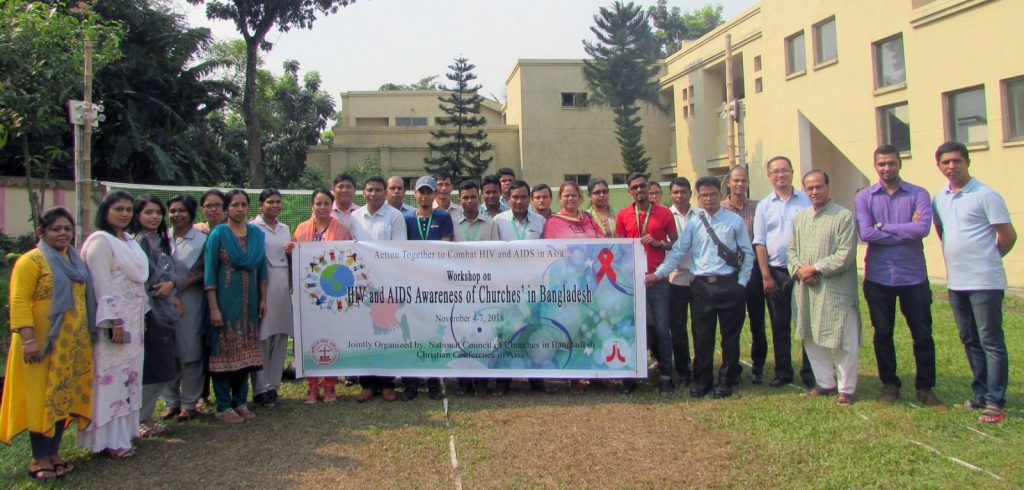Churches in Bangladesh commit to combat HIV and AIDS

Representatives of various churches in Bangladesh participated in a capacity building training organised by the Christian Conference of Asia (CCA) affirmed their commitment to combat HIV and AIDS through awareness building programmes at the congregational levels in the country.
The participants were engaged with interactive Bible studies, group activities for building awareness among rural folks and also mapping resources to respond to the epidemic.
Organized by the Christian Conference of Asia (CCA) in collaboration with the National Council of Churches in Bangladesh (NCCB) as part of CCA’s special programme Action Together to Combat HIV and AIDS in Asia (ATCHAA), the workshop was held at the Hope Centre, Savar, Dhaka from 3 to 7 November 2018.
Although Bangladesh is considered as a low prevalence country for HIV infection, the increasing trend indicates that the country remains extremely vulnerable to an HIV epidemic.
High levels of HIV infection have been found among drug users in one part of the capital city, Dhaka.
Rev David A Das, General Secretary of NCCB affirmed that churches in Bangladesh have to be equipped to respond to the need of the people, and the church members have to be well prepared with knowledge, information and resources.
Dr Ronald Lalthanmawia, Coordinator, HIV and AIDS Programme of CCA outlined the objectives of ATCHAA.
“HIV and AIDS is a priority concern of CCA, and every effort to enhance the capacity of member churches and councils to combat the spread of the disease will be undertaken by CCA”, said Dr. Lalthanmawia.
‘There are many constraints in resources for HIV testing, treatment, counseling as well as extending support to the affected people in Bangladesh. Stigma and discrimination continue among most Bangladeshi people’, said, Major Ganendra Baroi, Moderator of the Medical Service Department of NCCB.
He also mentioned that lack of awareness and incorrect information is something the churches in Bangladesh can effectively respond to and be the source of information and take positive actions.
Participants expressed a major concern that in a country where limited access to voluntary counseling and testing services, only very few Bangladeshi's are aware of their HIV status.










